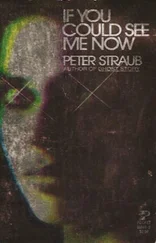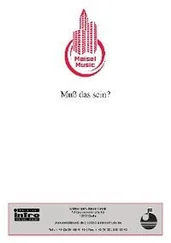By the time he got back to the Peugeot, his forehead was filmed with sweat. He unlocked the car, tossed the panniers inside, climbed in, and placed the satchel next to his right leg. He wiped his forehead with his handkerchief and fished the boy’s wallet from his jacket pocket. It was made of red leather stamped with the Cartier logo. Three hundred francs, about sixty dollars. A driver’s license in the name of Marc-Antoine Labouret, with an address in Bayonne. A prepaid telephone card. A membership card from a video rental store. The business card of a Bayonne lawyer. A folded sheet of notepaper filled with handwritten telephone numbers, none familiar. A credit card made out to François J. Pelletier. Another credit card made out to Rémy Grosselin. Drivers’ licenses in the names of François J. Pelletier and Rémy Grosselin of Toulouse and Bordeaux, respectively, each displaying the image of a recently deceased young criminal. The forgeries were what N thought of as ‘friend of a friend’ work, subtly misaligned and bearing faint, pale scars of erasure. He withdrew the money, put the wallet on the dash, and pulled the panniers toward him.
The first held only rammed-in jeans, shirts, underwear, socks, a couple of sweaters, and everything was crushed and wrinkled, filthy, permeated with a sour, poverty-stricken smell. Disgusted, N opened the second pannier and saw glinting snaps and the dull shine of expensive leather. He extracted an alligator handbag. It was empty. The next bag, also empty, was a black Prada. He took four more women’s handbags from the pannier, each slightly worn but serviceable, all empty. Fitting them back into the pannier, N could see the kid roaring alongside his victims, ripping the bags from their shoulders, gunning away. He had stripped the money and valuables, junked everything else, and saved the best to peddle to some other rodent.
Either N’s employers were getting desperate, or he had misidentified a would-be mugger as his appointed assassin. The latter seemed a lot more like reality. Irritated, concerned, and amused all at once, he went over the past twenty-four hours. Apart from the boy, the only people he had seen more than once were Japanese tourists who went out for walks in the rain and bought garish berets. His contact had said something about Japanese labor, but that meant nothing. A siren blared behind him. Immediately, another screamed in from his left. He shoved the Cartier wallet into one of the panniers and wound back through the one-way streets.
A boom and clatter of bells louder than sirens celebrated the conclusion of another mass. The traffic slowed to pedestrian speed as it moved past the restaurant, where uniformed policemen questioned the remaining diners on the terrace. Two others, smart in their tunics and Sam Browne belts, blocked the entrance of the alley. The traffic picked up again, and soon he was breezing down the wide, straight road toward Montory.
At Alos, an abrupt turn took him over an empty bridge. Halfway across, he halted, trotted around the front of the car, opened the passenger door, and in one continuous motion reached inside, thrust his hip against the railing, and sent the panniers whirling out over the swift little Saison River.
The contact took twenty minutes to call him back.
‘So we had a little hang-up, did we?’ N asked, quoting his words back to him.
‘I’m not in the usual place. It’s Sunday afternoon, remember? They had to find me. What’s going down? You weren’t supposed to call in until tonight.’
‘I’m curious about something,’ N said. ‘In fact, I’m a pretty curious guy, all in all. Humor me. Where did they find you? A golf course? Is it like being a doctor, you carry a beeper?’
There was a short silence. ‘Whatever you’re unhappy about, we can work it out.’ Another brief silence. ‘I know Martine came as a nasty surprise. Honestly, I don’t blame you for being pissed. You need her like a hole in the head. Okay, here’s the deal. No reports, no paperwork, not even the firearms statements. You just walk away and get that big, big check. She handles all the rest. Are you smiling? Do I see a twinkle in your eye?’
‘You were at your health club, maybe?’ N asked. ‘Did you have to leave a really tense racquetball match just for me?’
The contact sighed. ‘I’m at home. In the old wigwam. Actually, out in back, setting up a new rabbit hutch for my daughter. For her rabbit, I mean.’
‘You don’t live in Paris.’
‘I happen to live in Fontainebleau.’
‘And you have a beeper.’
‘Doesn’t everyone?’
‘What’s the rabbit’s name?’
‘Oh, dear,’ the contact said. ‘Is this how we’re going to act? All right. The rabbit’s name is Custer. Family joke.’
‘You mean you’re a real Indian?’ N asked, and laughed out loud in surprise. ‘An honest-to-God Red Man?’ His former image of his contact as a geek in thick glasses metamorphosed into a figure with high cheekbones, bronze skin, and straight, shoulder-length black hair.
‘Honest Injun,’ the contact said. ‘Though the term Native American is easier on the ears. You want to know my tribal affiliation? I’m a Lakota Sioux.’
‘I want to know your name.’ When the contact refused to speak, N said, ‘We both know you’re not supposed to tell me, but look at it this way: You’re at home. No one is monitoring this call. When I’m done here, no one is ever going to hear from me again. And I have to say, telling me your name would reinforce that bond of trust I find crucial to good fieldwork. As of now, the old bond is getting mighty frayed.’
‘Why is that?’
‘Tell me your name first. Please, don’t get tricky. I’ll know if you’re lying.’
‘What on earth is going on down there? All right. I’m putting my career in your hands. Are you ready? My name is Charles Many Horses. My birth certificate says Charles Horace Bunce, but my Indian name was Many Horses, and when you compete for government contracts, as we have been known to do, you have to meet certain standards. Many Horses sounds a lot more Native American than Bunce. Now can you please explain what the hell got you all riled up?’
‘Is someone else down here keeping an eye on me? Besides Martine? Someone I’m not supposed to know about?’
‘Oh, please,’ the contact said. ‘Where’s that coming from? Ah, I get it – sounds like you spotted somebody, or thought you did anyhow. Is that what this is all about? I guess paranoia comes with the territory. If you did see someone, he’s not on our payroll. Describe him.’
Today in Mauléon, I noticed a kid I saw hanging around the café last night. Five-ten, hundred and fifty pounds, late twenties. Long blond hair, grubby, rides a Kawasaki bike. He was following me, Charles, there is no doubt at all about that. Where I went, he went, and if I weren’t, you know, sort of reasonably adept at my job, I might never have noticed the guy. As it was, I had to run out of a restaurant by the back door to ditch him. Okay, call me paranoid, but this sort of thing tends to make me uncomfortable.’
‘He’s not ours,’ the contact said quickly. ‘Beyond that, I don’t know what to tell you. It’s your call, champ.’
‘Okay, Charles,’ said N, hearing a murky ambiguity in the man’s voice. ‘This is how it goes. If I see the kid again tonight, I have to deal with him.’
‘Sounds good to me,’ said the contact.
‘One more thing, Charles. Have we, to your knowledge, taken on any Japanese field people? You mentioned this possibility yesterday. Was that an idle remark, or … no. There are no idle remarks. We hired some Japanese.’
‘Now that you mention it, a couple, yeah. It’s impossible to find people like you anymore. At least in the States.’
Читать дальше












